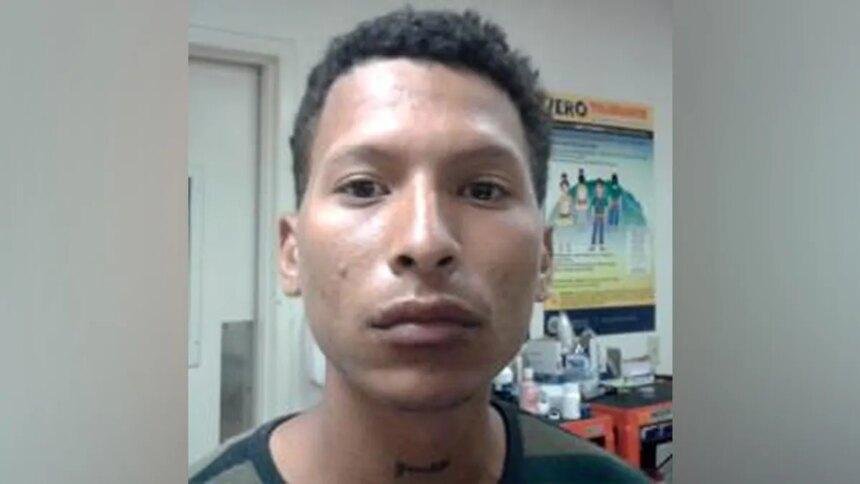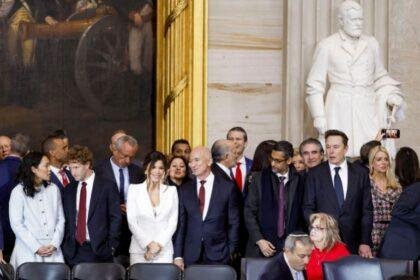Federal Crackdown in Chicago Targets Violent Offenders Amid Rising Tensions
In a significant law enforcement operation, the U.S. Department of Homeland Security (DHS) announced the arrest of numerous individuals identified as some of Chicago’s most dangerous offenders. This initiative, dubbed Operation Midway Blitz, comes at a time when the city is grappling with escalating violence and public unrest, raising questions about the balance between public safety and civil liberties.
Operation Midway Blitz: A Focus on Violent Criminals
Launched in early September, Operation Midway Blitz aims to apprehend violent gang members, child abusers, and drug traffickers who are in the country illegally. According to DHS, the operation has already resulted in over 1,000 arrests across Illinois, marking a significant escalation in federal enforcement efforts. The operation specifically targets individuals with extensive criminal histories, including those involved in violent crimes and drug trafficking.
Among those arrested is Wilmer Alexander Gonzalez Garaban, an alleged member of the Tren de Aragua gang from Venezuela, who has a history of theft and resisting arrest. Other notable arrests include Ricardo Gervasio-Gervasio, a repeat offender with convictions for drug-related crimes, and Jorge Mario Ramirez-Lopez, a Guatemalan national with a larceny conviction. The DHS statement emphasized that these arrests are part of a broader strategy to enhance public safety in the face of rising crime rates.
Context of Violence and Unrest in Chicago
Chicago has been experiencing a surge in violence, with recent protests against federal operations adding to the tension. The city has long struggled with gang-related crime, and the current climate has been exacerbated by a series of violent incidents, including vehicle attacks on law enforcement officers. Secretary of Homeland Security Kristi Noem praised the efforts of federal agents, stating, “We will not let violence by domestic terrorists and lawless rioters in Chicago slow us down from fulfilling the President’s mandate to arrest the worst of the worst.”
The operation has not been without controversy. Critics argue that aggressive federal enforcement can lead to community distrust and further alienate immigrant populations. The balance between enforcing immigration laws and maintaining community relations is a delicate one, particularly in a city that has declared itself a sanctuary for undocumented immigrants.
The Impact of Federal Enforcement on Local Communities
The recent arrests have sparked a heated debate about the role of federal law enforcement in local communities. While supporters of Operation Midway Blitz argue that it is necessary to combat crime and protect citizens, opponents contend that such operations can lead to racial profiling and the unjust targeting of vulnerable populations.
In a dramatic incident on October 4, agents were reportedly surrounded by vehicles in Chicago’s Brighton Park neighborhood, leading to a confrontation that resulted in gunfire. One driver was hospitalized and later charged, raising questions about the use of force by federal agents. In a separate incident in Franklin Park, ICE agents shot and killed Silverio Villegas-Gonzalez, who allegedly attempted to flee during a vehicle stop. These events have ignited protests and calls for accountability, with activists questioning the proportionality of the agents’ actions.
Historical Context: Federal Enforcement and Community Relations
The current situation in Chicago is not an isolated incident but part of a broader historical pattern of federal enforcement in urban areas. The relationship between federal agencies and local communities has often been fraught with tension, particularly in cities with significant immigrant populations. The legacy of past enforcement actions, such as the controversial Operation Wetback in the 1950s, continues to influence perceptions of federal law enforcement today.
In recent years, the rise of sanctuary cities has further complicated this dynamic. These cities, which limit cooperation with federal immigration enforcement, have become focal points for debates about immigration policy and public safety. Proponents argue that sanctuary policies foster trust between law enforcement and immigrant communities, while critics claim they enable criminal behavior.
Conclusion: Navigating the Future of Law Enforcement in Chicago
As Operation Midway Blitz continues, the implications for Chicago’s communities remain to be seen. The balance between ensuring public safety and respecting civil liberties is a complex issue that requires careful consideration. While the arrests of violent offenders may provide a sense of security for some residents, the potential for community backlash and increased tensions cannot be overlooked.
The ongoing dialogue surrounding federal enforcement in urban areas highlights the need for a nuanced approach that prioritizes both safety and community trust. As Chicago navigates these challenges, the outcomes of operations like Midway Blitz will likely shape the future of law enforcement and community relations in the city for years to come.











